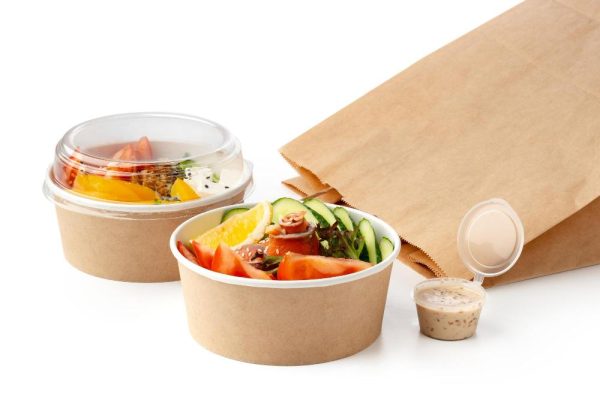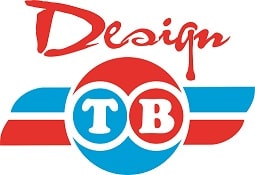In India, food is more than sustenance; it is culture, identity, and emotion. But in today’s fast-paced, urbanizing, and digitally-connected nation, how that food reaches the consumer has undergone a radical transformation. At the heart of this change lies a dynamic, innovative, and fiercely competitive industry: food packaging. No longer a mere protective shell, packaging is now a critical tool for branding, preservation, logistics, and sustainability. The top food packaging companies in India are not just manufacturers; they are enablers of the modern food ecosystem, catering to a spectrum that spans from a home-delivered biryani to a shelf-stable gourmet pasta sauce.
The Indian food packaging companies are a colossal arena, driven by a booming FMCG sector, the rise of e-commerce, and shifting consumer lifestyles. To lead here, a company must master a complex trifecta: scale, innovation, and adaptability. The players who dominate the field have built their empires on these very principles.

The Titans of the Industry: A Diverse and Dynamic Landscape
The hierarchy of top food packaging companies in India is multifaceted, featuring global giants with a strong local presence, homegrown behemoths, and specialized innovators.
1. UFlex Limited: The Homegrown Powerhouse
Often regarded as one of India’s largest flexible packaging companies, UFlex is a testament to indigenous innovation and global ambition. Their strength lies in their vertically integrated model, controlling everything from producing polyester film (BOPET) to printing, laminating, and converting it into finished packages. For the food industry, UFlex offers a vast portfolio, including:
-
Stand-up Pouches: For snacks, spices, and ready-to-eat meals.
-
Laminated Tubes: For products like condensed milk and sauces.
-
Aseptic Packaging: For juices and dairy products, extending shelf life without refrigeration.
Their commitment to R&D is evident in their development of high-barrier, sustainable films that protect taste and nutrition.
2. Huhtamaki India: The Global Sustainability Leader
Part of the Finland-based Huhtamaki Group, this company is a dominant force in molded-fiber and rigid-plastic packaging. They are a key partner for the QSR (Quick Service Restaurant) industry, providing everything from paper cups and containers for your takeaway pizza and burger to lids and straws. Huhtamaki’s “Packaging for Good” strategy emphasizes sustainability, driving the development of compostable, biodegradable, and recyclable solutions. Their products are ubiquitous in Indian households, making them a trusted name in food-safe packaging.
3. Amcor India: The Flexible Packaging Giant
A global leader in responsible packaging, Amcor’s Indian operations are a major force, particularly in flexible packaging. They specialize in creating high-barrier, lightweight pouches and lidding films for a wide range of food products, from salty snacks and coffee to cheese and pet food. Amcor’s strength is its global R&D capabilities, which it leverages to develop innovative solutions that reduce food waste and improve shelf appeal. Their focus on developing all-polyethylene recyclable structures positions them as a key player in the circular economy.
4. TCPL Packaging: The Integrated Solution Provider
TCPL Packaging, formerly known as TCPL, is a comprehensive packaging solutions provider. Their expertise spans folding cartons, flexible packaging, and rigid boxes. They serve a diverse clientele, including many of India’s top FMCG brands. Their ability to provide a one-stop shop for various packaging needs—from the cardboard carton for a biscuit packet to the inner liner that keeps it fresh—makes them a valuable and versatile partner for large food conglomerates.
A Spotlight on Sonoco Asia: The Specialist in Protection
While the names above are broad-spectrum giants, Sonoco Asia (a division of the US-based Sonoco Products Company) deserves a special mention as a master of specialization. Sonoco has carved a significant niche in rigid paperboard containers and composite cans.
Their relevance in the Indian food market is profound. If you have ever bought premium fruit juice, ghee, dry fruits, specialty snacks, or even protein powder, chances are it came in a sturdy, cylindrical Sonoco container. Their specialties include:
-
Composite Cans: These multi-layered containers, often with a metal bottom, offer superior protection against light, oxygen, and moisture, which is crucial for preserving the freshness and shelf life of sensitive products.
-
Thermoformed Plastic Packaging: They produce trays, clamshells, and blisters for fresh foods, baked goods, and confectionery.
-
Brand-Centric Innovation: Sonoco focuses on creating packaging that not only protects but also enhances brand visibility on the shelf with high-quality printing and structural design.
Sonoco’s success in India hinges on its deep understanding of the need for product integrity, especially for brands marketing premium, imported, or nutrition-sensitive foods. They represent the critical segment of the market that prioritizes supreme protection above all else.
The Driving Forces and Future Trends
The competition among these leaders is fuelling remarkable trends across the industry:
-
Sustainability as a Mandate: The push against single-use plastics is relentless. Leaders are investing heavily in recycled content, mono-material plastics for easier recycling, and compostable biomaterials.
-
E-commerce Ready Design: Packaging is being re-engineered to be more durable, lightweight, and tamper-evident to survive the rigors of the “last mile” delivery.
-
Smart and Active Packaging: The incorporation of QR codes for traceability and technologies that actively absorb oxygen or moisture to extend freshness are becoming key differentiators.
-
Hyper-Local Adaptability: The ability to service both massive national brands and the burgeoning ecosystem of D2C (Direct-to-Consumer) food startups is a crucial skill for future growth.
Conclusion
The top food packaging companies in India are the invisible architects of the nation’s modern food experience. They have moved far beyond mere containment to become partners in innovation, brand-building, and sustainability. From UFlex’s flexible marvels to Huhtamaki’s molded fiber solutions and Sonoco’s protective composite cans, these companies provide the essential toolkit that allows food brands to safely and appealingly traverse India’s vast and varied landscape. As consumer demands evolve, the battle for packaging supremacy will only intensify, promising a future where the package is as innovative as the product it contains.
FAQs: Top Food Packaging Companies in India
1. What are the main types of packaging these top companies specialize in?
The industry is broadly segmented into three categories:
-
Flexible Packaging: This includes pouches, bags, and wrappers, dominated by companies like UFlex and Amcor. It’s lightweight, cost-effective, and highly customizable.
-
Rigid Packaging: This includes boxes, bottles, tubs, and containers. Huhtamaki (paper cups) and Sonoco (composite cans) are key players here, offering sturdiness and high-quality printing.
-
Glass & Metal Packaging: While not covered in detail above, companies like Hindustan Tin Works and HNG Glass are significant players in products that require absolute impermeability, such as beverages, pickles, and processed foods.
2. Why is sustainability such a big focus, and how are companies addressing it?
Sustainability is driven by consumer demand, corporate responsibility (ESG goals), and stringent government regulations (such as bans on certain single-use plastics). Companies are addressing it by:
-
Developing packaging with recycled content.
-
Creating “mono-material” plastics that are easier to recycle than complex multi-layer laminates.
-
Investing in compostable and biodegradable materials made from plant-based sources.
-
Designing for lightweighting to reduce material use and transportation emissions.
3. How does the rise of e-commerce and D2C brands affect these packaging companies?
E-commerce has created a new set of requirements. Packaging must now be:
-
Durable: To withstand shipping and handling without damage.
-
Tamper-Evident: To assure consumers of product safety.
-
Right-sized: To minimize shipping costs and reduce waste.
-
Brandable: The “unboxing experience” is a key marketing moment for D2C brands. This has forced packaging companies to innovate in structural design and digital printing for smaller, customized batches.
4. What should a small food startup look for in a packaging partner?
A startup should prioritize partners that offer:
-
Low Minimum Order Quantity (MOQ): The ability to order smaller, cost-effective batches.
-
Design and Prototyping Support: Help in creating a unique and functional package from scratch.
-
Regulatory Knowledge: Guidance on FSSAI compliance for food-contact materials.
-
Agility: A partner that can respond quickly to changes and growth.
5. With giants like Amcor and Huhtamaki, how can a company like Sonoco Asia compete?
Sonoco competes through specialization, not generalization. While the giants offer a vast array of solutions, Sonoco has deep, focused expertise in specific formats like composite cans and rigid paperboard containers. For brands that need superior protection for sensitive, high-value, or shelf-life-critical products, Sonoco’s specialized knowledge and product performance are often the deciding factors. This strategy of dominating a niche allows them to thrive alongside the broader-market titans.


Bài viết liên quan: